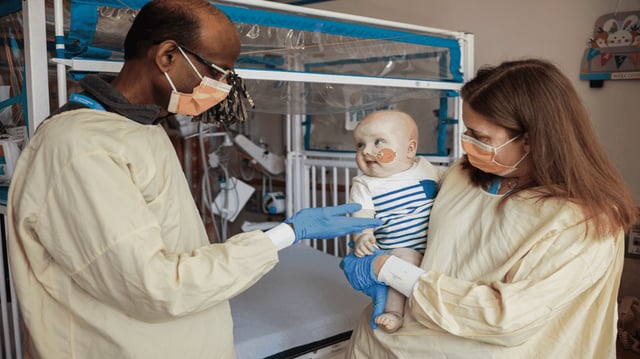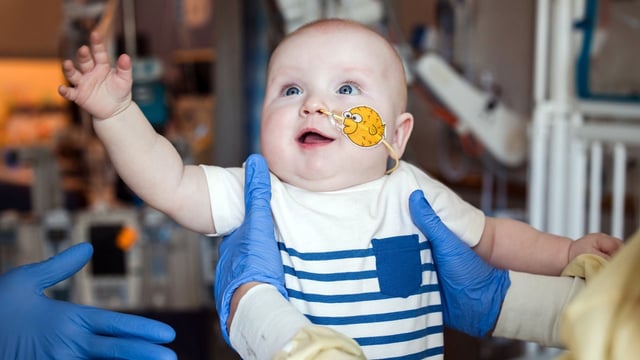Overview
- KJ Muldoon, diagnosed with severe CPS1 deficiency at birth, received a fully personalized CRISPR base-editing therapy tailored to his unique genetic mutation.
- The treatment, developed and FDA-fast-tracked within six months, involved three infusions administered between February and April 2025.
- Early results show improved protein metabolism, reduced reliance on ammonia-control medication, and developmental progress, though long-term efficacy remains under evaluation.
- The case, detailed in the New England Journal of Medicine, demonstrates the potential of individualized gene editing for ultra-rare diseases previously lacking effective treatments.
- Researchers emphasize the need for continued monitoring while expressing cautious optimism that this approach could serve as a model for future personalized therapies.



